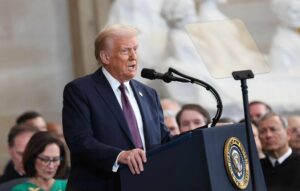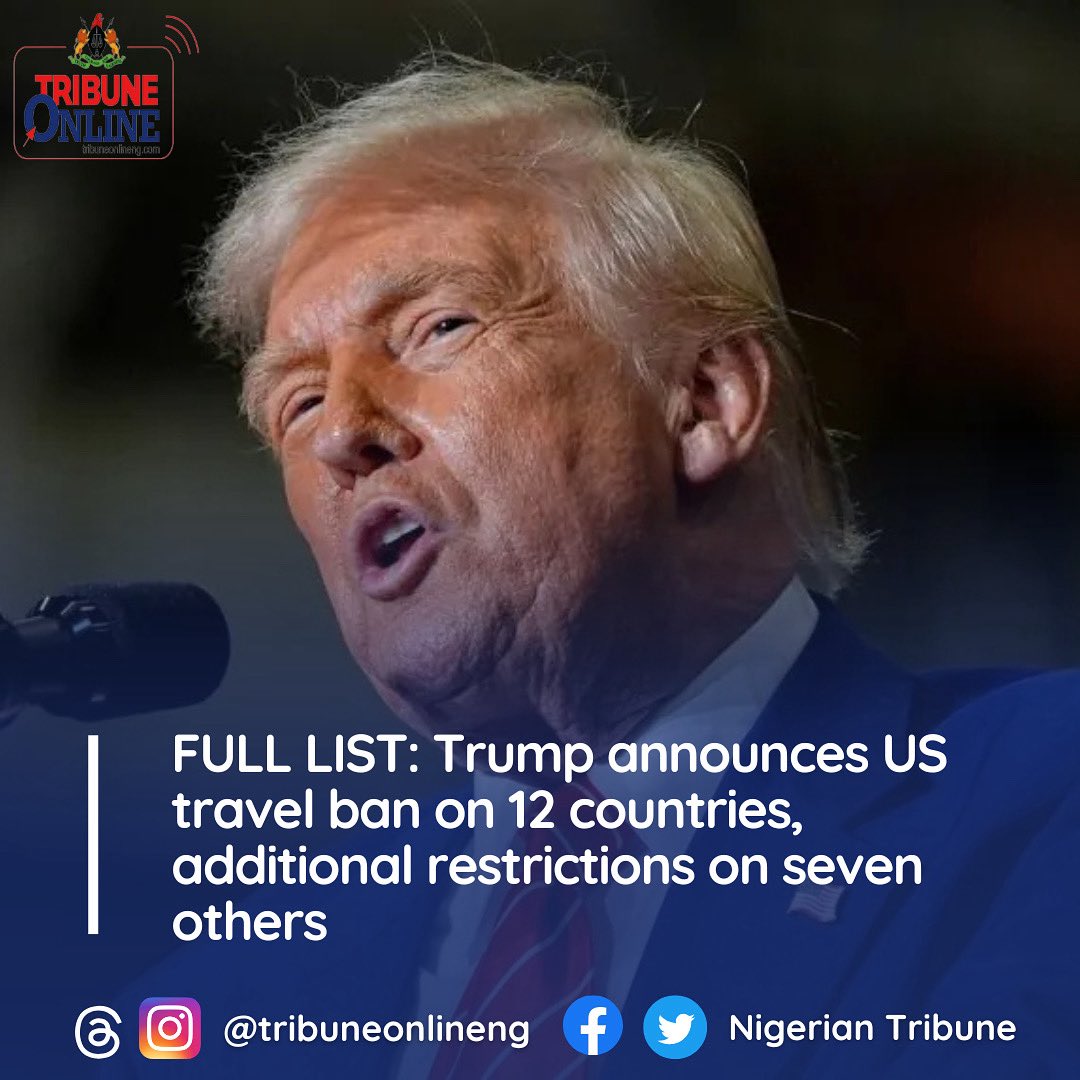
There’s significant breaking news regarding Donald Trump and a travel ban. As of today, June 5, 2025, Donald Trump, as President of the United States, has signed a new executive order imposing a full travel ban on citizens of 12 countries and placing heightened restrictions on seven additional countries.
This is a very recent development and is set to take effect on Monday, June 9, 2025, at 12:01 a.m.
local time (Washington, D.C.).
This action marks a revival and expansion of a hallmark policy from his previous term in office.
Breaking News: President Trump Imposes New Travel Ban on 12 Countries, Restricts Seven Others
Washington D.C. – June 5, 2025 – In a significant move echoing a cornerstone policy from his first term, President Donald Trump today signed a new executive order imposing a full travel ban on citizens from 12 countries and heightened restrictions on seven more. This sweeping measure is set to go into effect on Monday, June 9, 2025, at 12:01 a.m. EDT.
The White House stated that these restrictions are necessary to protect U.S. national security, citing concerns over terrorism risks, inadequate vetting processes in the affected nations, and a lack of cooperation regarding the repatriation of citizens who have overstayed their visas in the United States.
Countries Facing a Full Travel Ban (12 Nations):
Citizens from these countries will face a complete suspension of immigrant and non-immigrant visas, effectively barring entry into the U.S.
Afghanistan
Chad
Republic of the Congo
Equatorial Guinea
Eritrea
Haiti
Iran
Libya
Myanmar
Somalia
Sudan
Yemen
Countries Facing Heightened Travel Restrictions (7 Nations):
Nationals from these countries will no longer be able to apply for immigrant visas or certain non-immigrant temporary visas (including those for permanent immigration, student visas, and tourism visas like B-1, B-2, B-1/B-2, F, M, and J). They may still apply for some other visa categories.
Burundi
Cuba
Laos
Sierra Leone
Togo
Turkmenistan
Venezuela
Key Aspects of the New Ban:
Justification: President Trump explicitly linked the new ban to recent security concerns, including a terror attack in Boulder, Colorado, stating it “underscored the extreme dangers posed to our country by the entry of foreign nationals who are not properly vetted, as well as those who come here as temporary visitors and overstay their visas.”
Scope: The ban impacts both those seeking to immigrate permanently and various categories of temporary visitors, including tourists and students. It does not, however, revoke visas issued before
June 9, 2025.
Exemptions: The proclamation outlines specific exemptions, including:
Lawful permanent residents (green card holders) of the U.S.
U.S. citizens who also hold citizenship from one of the banned countries, provided they travel on a non-banned passport.
Spouses and children of U.S. citizens who can provide clear evidence of identity and family relationship.
Afghan Special Immigrant Visa holders (those who assisted the U.S. government).
Certain diplomats and foreign government officials.
Athletes and their support staff travel for major sporting events like the World Cup or the Olympics.
Iranians belonging to ethnic or religious minorities are fleeing persecution.
Immediate Reactions: The announcement has already drawn swift condemnation from civil rights groups, humanitarian organizations, and some international bodies, who label the policy as discriminatory and harmful. The African Union Commission, for instance, voiced concerns about the negative impact on educational exchanges and diplomatic relations.
Legal Challenges Expected: Given the legal battles surrounding Trump’s initial travel bans during his first term, legal challenges to this new proclamation are highly anticipated. However, the Supreme Court upheld the third iteration of his previous travel ban in 2018, potentially setting a precedent for this new order.
This development marks a significant shift in U.S. immigration policy and will undoubtedly generate extensive debate and implications both domestically and internationally.
Join our socials
https://www.instagram.com/stranacmedia/
https://x.com/stranacmedia
@stranacmedia


